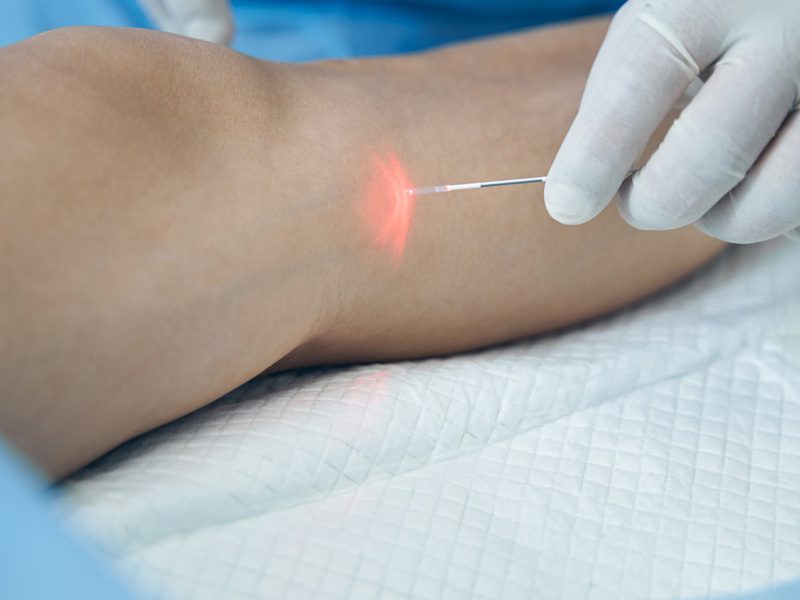
Your veins tirelessly transport deoxygenated blood and cellular waste back to your heart to keep your body systems working well. But when your varicose veins start causing trouble, it’s time to think of vein closure.
Maybe you got as far as searching for “vein closure near me” but got cold feet?
It’s understandable. It can bring up a common – often unexpressed – fear: Can my body manage without this vein?
Then you delay contacting a vein specialist – and then things risk getting worse.
So – let’s have a closer look at how you can manage without one or two veins if you need to have them closed.
We’ll assume, here, that this kind of worry concerns all forms of vein closure – because vein closure in effect removes the vein from taking part in your body’s circulation system.
The Importance of Veins in Your Circulatory System
Veins play a crucial role in your circulatory system, transporting oxygen-poor blood back to your heart.
In your legs, of course, veins face the extra challenge of pumping blood upwards, against gravity, which is why varicose veins often occur there! When the valves in these veins weaken or get damaged, blood can accumulate and cause the veins to bulge, appearing twisted or rope-like.
This is what brings you the discomfort, pain, and other unpleasant symptoms that eventually started your search for vein closure!
But fear not! The treatments for vein closure not only relieve these symptoms but actually enhance your overall blood flow and circulation. You can manage without the bad veins!
Vein Closure Procedures
There are several methods for vein closure – so here’s a quick reminder of the ones we offer you at Denver Vein:
- Endovenous Laser Ablation of the Saphenous Vein (ELAS) uses a laser to generate heat and close off the vein.
- VenaSeal Closure System injects medical adhesive to close the vein.
- Ambulatory Phlebectomy involves draining and partially removing the vein through small incisions in the skin.
- Ultrasound Guided Medical Sclerotherapy involves injecting a solution directly into the affected vein, causing it to scar and close off.
As you can see, all the procedures remove the vein from your circulatory system.
Can you manage without it? To be reassured, you need to know what happens next!
What Happens After a Vein is Closed Off?
1 Your body creates scar tissue
The procedure may cause irritation and inflammation within the vein wall, which triggers the body to create scar tissue around the closed vein.
2 Vein fibrosis starts
Vein fibrosis – thickening and scarring of tissue – is part of your body’s innate healing mechanisms. Over time, the vein walls collapse and stick together.
3 Redirection of blood flow
After your treated vein closes off, your blood flow redirects itself to nearby healthy veins. Your circulatory system naturally finds alternative pathways for your blood to flow, so deoxygenated blood and cellular waste in your veins can reach the intended destination.
4 Pressure and symptoms drop
Effectively rerouting your blood to other veins helps reduce the amount of pressure that was on the closed vein. As a result, you experience relief from the symptoms you had, such as pain and swelling, itching or discoloration, etc.
5 The closed vein disappears
Over time, your body naturally breaks down and absorbs the closed vein until it completely disappears. You didn’t need it any more.
Long-Term Results: Say Goodbye to Pain and Discomfort!
If you undergo a necessary vein closure procedure, you’ll experience improved blood flow and a lower risk of complications like blood clots.
You’ll also find an improvement in the cosmetic appearance of your legs.
And it doesn’t stop there! Your overall quality of life can also get a major boost because you’ll be able to do physical activities that were previously a struggle.
Of course, your result will be unique to you and can vary depending on
- individual factors in your medical history,
- the severity of your vein condition, and
- the specific treatment you undergo.
Always consult with a healthcare professional to understand the expected outcomes and discuss any concerns or follow-up care required.
Understanding Potential Side Effects of Vein Closure and Treatments
Vein closure treatments are generally safe and well tolerated. Although side effects are not common, it’s important to be aware of the potential risks involved.
In some cases, you may experience temporary bruising, redness, or swelling around the treated area. Rarely, a few patients have noticed a slight change in skin color or small areas of trapped blood. These side effects are typically mild and self-resolving within a few days.
To keep the side effects to a minimum, follow the post-treatment care instructions your healthcare professional provides. This may include things like:
- avoiding strenuous activity
- wearing compression stockings
- maintaining a healthy lifestyle with regular exercise and a balanced diet
- drinking enough water
Remember, while vein closure treatments are generally safe and effective, it’s always important to discuss any concerns or questions with your healthcare provider. But we hope we’ve answered your perhaps unspoken fear about how your body can manage without one of your veins!
Embark on a Journey Towards Better Vascular Health
Don’t let fears about varicose vein treatments hold you back from living your best life and stepping outside with renewed confidence!
At Denver Vein Center, we have an experienced team who can help you discover the ideal vein closure procedure for you so you can experience a pain-free, energized life. Get in touch with us today and schedule an appointment!